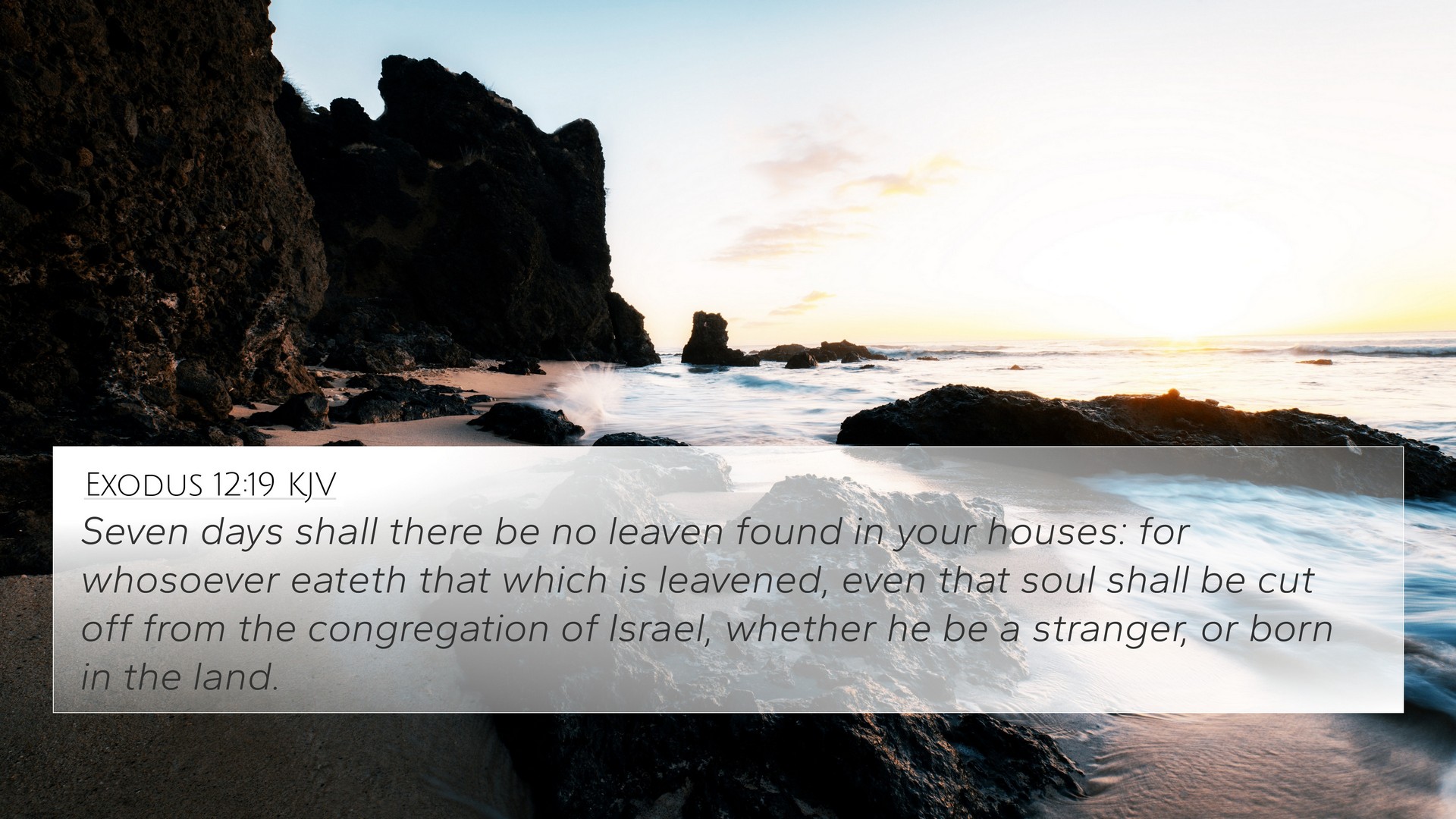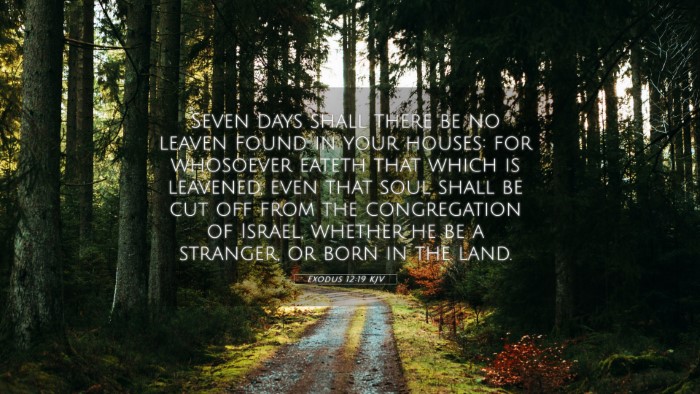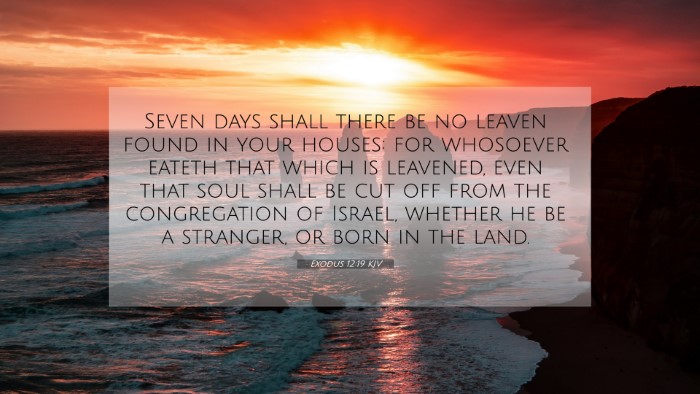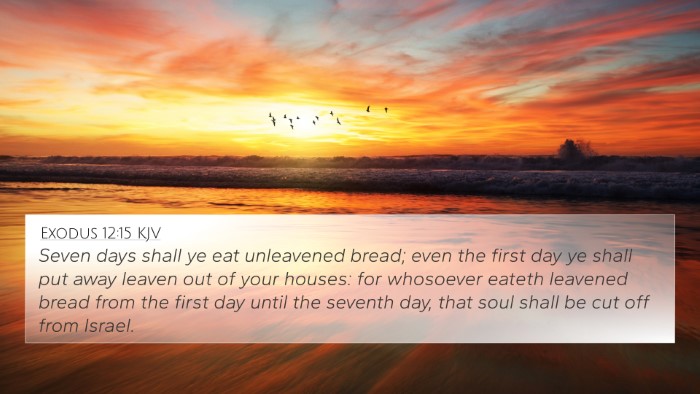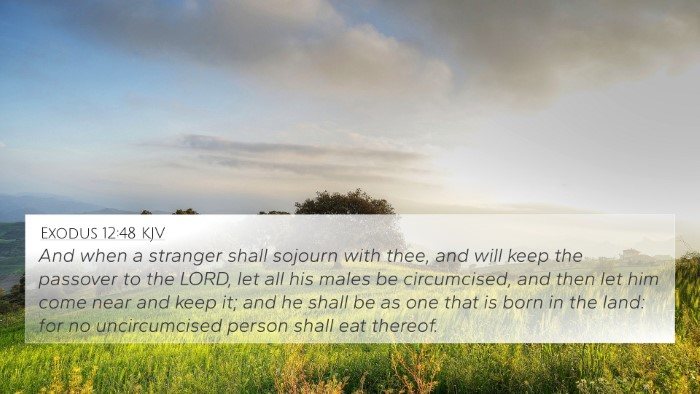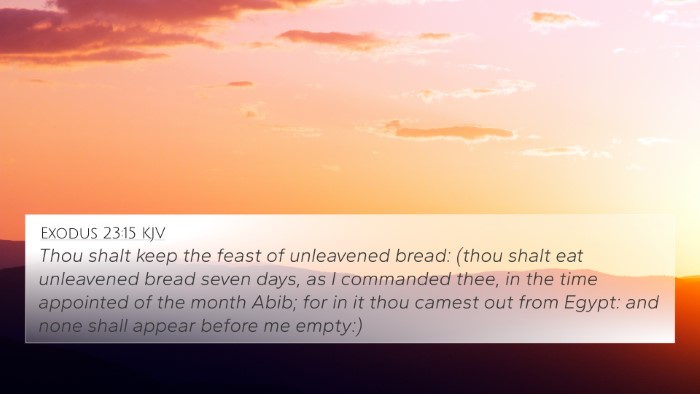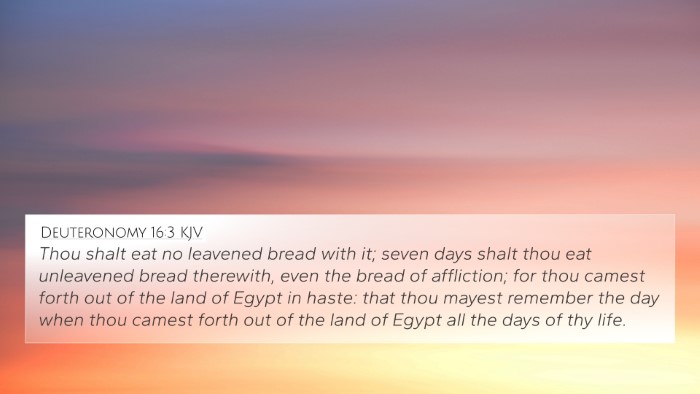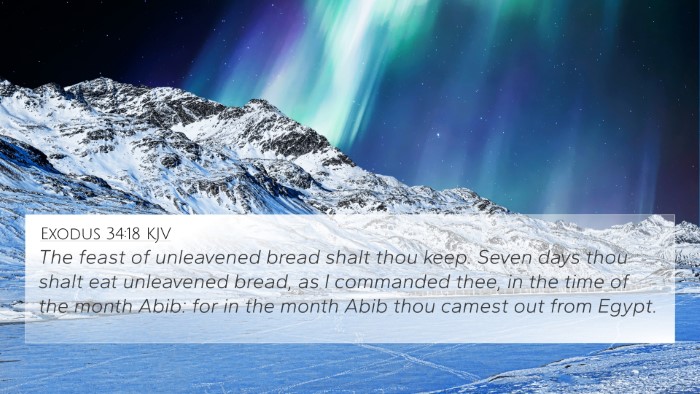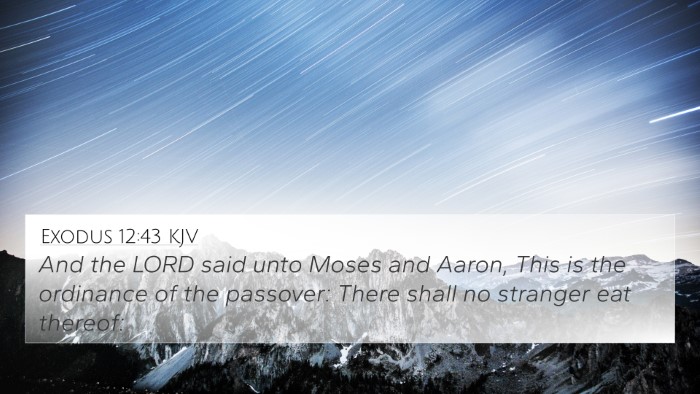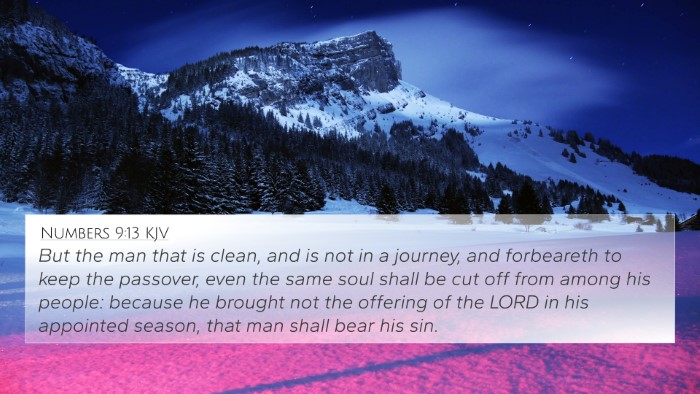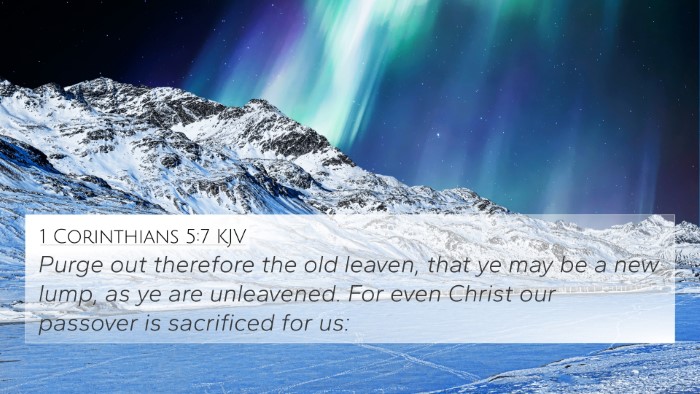Understanding Exodus 12:19
Verse Reference: Exodus 12:19
“For seven days there shall be no leaven found in your houses. For whoever eats what is leavened, that person shall be cut off from the congregation of Israel, whether he is a sojourner or a native of the land.”
Summary of Exodus 12:19
In this verse, God commands the Israelites to remove all leaven from their homes during the Passover feast. This directive symbolizes the importance of purity and separation from sin, as leaven often represents corruption and decay. By prohibiting leaven, God instructs His people to partake in a time of holiness as they prepare to remember their deliverance from Egypt.
Commentary Insights
Matthew Henry's Commentary
Henry emphasizes that leaven signifies sin in the Bible, and thus its removal serves as a metaphor for the believers' need to expunge sin from their lives. He notes that the warning against consuming leavened bread highlights God's holiness and the necessity for His people to remain distinct from the world.
Albert Barnes' Commentary
Barnes discusses the historical context of the Passover and how the Israelites were to symbolize their haste in escaping Egypt by eating unleavened bread. He ties this to the broader theme of sanctification, wherein believers are called to avoid what corrupts and to seek a life that honors God.
Adam Clarke's Commentary
Clarke addresses the communal aspect of the command, noting that the directive applied to all members of the community—both native and sojourner—demonstrating God's inclusive call to holiness. He further elaborates on the spiritual implications of this injunction, connecting it to the New Testament view of sin and its consequences.
Cross-References
This verse can be linked to several other scripture passages that enhance its understanding:
- 1 Corinthians 5:6-8: Paul references leaven in relation to sin, calling believers to be unleavened in their lives.
- Exodus 13:7: Further instruction on maintaining the observance of unleavened bread during Passover.
- Leviticus 23:6: Reiterates the importance of eating unleavened bread during the Feast of Unleavened Bread.
- Matthew 16:6: Jesus warns against the leaven of the Pharisees, representing false doctrine.
- Galatians 5:9: Paul speaks of how a little leaven can affect the whole lump, reinforcing the idea of purity.
- Romans 6:12: Encourages believers to not let sin reign in their bodies, linking to the theme of separation from sin.
- Hebrews 12:15: Urges believers to pursue holiness and reflect on the consequences of failing to do so.
- John 6:35: Jesus identifies Himself as the bread of life, contrasting with the leaven of sin.
- Matthew 23:25-27: Highlights the external purity that the Pharisees adhered to but misses the inner purity God desires.
- 2 Timothy 2:19: States that the Lord knows those who are His, emphasizing the importance of departing from iniquity.
Thematic Connections
Exodus 12:19 provides a rich source for thematic Bible verse connections, especially relating to:
- Purity vs. Corruption: The need for spiritual cleanliness and the avoidance of sinful practices.
- Deliverance and Salvation: Linking the act of consuming unleavened bread to God’s redemptive work.
- Community and Holiness: The collective call of the community to holiness amidst diverse backgrounds.
Conclusion
Exodus 12:19 serves a dual purpose: it preserves the memory of Israel's liberation while teaching profound spiritual lessons about sin, sanctification, and community. By exploring this verse alongside its cross-references, believers can gain deeper insights into the significance of their faith journey.
